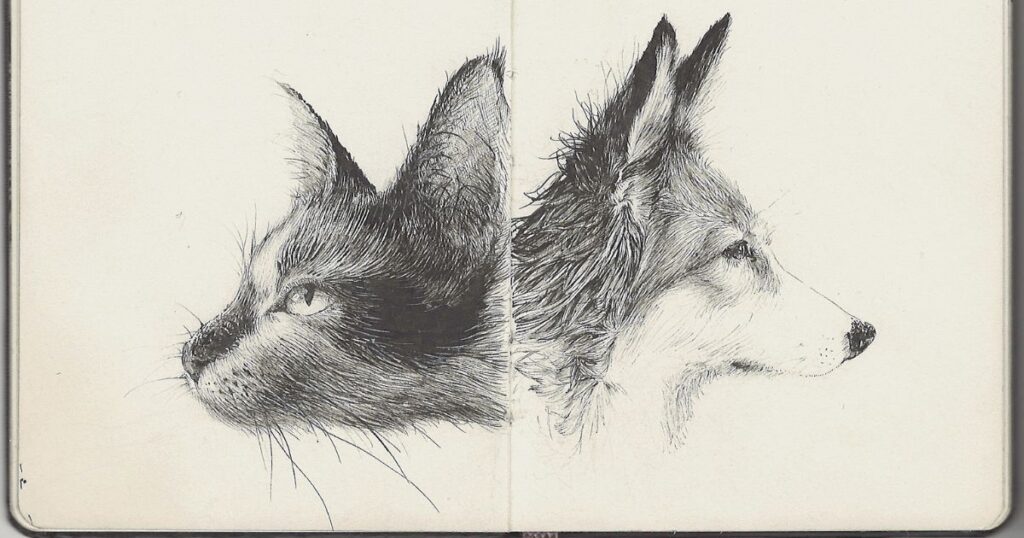Three Artists on What They Would Tell Their Younger Selves About Becoming an Artist

Experience is the best teacher, and in this week’s Three for Thursday, we’re giving you a head start. We asked three artists about what they’ve learned and what they would tell their younger selves. Their answers range from the inspirational, to the pragmatic, to simple resolve.
Todd Casey

Is there a lesson you learned early in your career that you have never forgotten and that still guides you?
An early lesson that I learned was to paint the things you love and not for an audience. This makes the work authentic and the pursuits of art, honest. After college I tried to take art out of my life to see if I could live without it. It was short lived and ever since then, I made it a pursuit to enrich my life, not to make a living.
What do you know now that you wish you’d known when you were just getting started? What would you like to tell your younger self?
Art is a lifelong pursuit. It’s not a sprint and it’s not a marathon. Take the time to work on mastering the instrument so you can make music for the rest of your life. To quote Robert Henri, “I am interested in art as a means of living a life; not as a means of making a living.”

Todd M. Casey studied drawing and painting at the Water Street Atelier withJacob Collins and also at the Art Students League with Max Ginsburg. He won first place four times in the Portrait Society of America Members Only Competition, and received gold medals from both the Allied Artists of America and the Hudson Valley Art Association.
Michael Chesley Johnson

Is there a lesson you learned early in your career that you have never forgotten and that still guides you?
Yes: Don’t put off the paperwork! This includes keeping records of paintings made and sold, lists of patrons and interested parties, applying for shows and events and, since I teach workshops, staying on top of all the details that they involve. Paperwork can bury a working artist if he doesn’t keep up with it. But…don’t let it become an obsession. Clear your desk, and then move on to making art.
What do you know now that you wish you’d known when you were just getting started? What would you like to tell your younger self?
Don’t quit your day job! I know this is a common adage, but I would like to stress it. I’ve always had a couple of things going in addition to painting, and if painting sales weren’t happening, the other two projects filled in the financial gaps. Even today, after over 20 years of being a successful, working artist, I still have other things I do to help out when sales are slow.

Michael Chesley Johnson splits his year between studios in New Mexico and Campobello Island, Canada, painting mostly outdoors. He is the author of several books, including Beautiful Landscape Painting Outdoors: Mastering Plein Air, and teaches workshops across the US. He was awarded Master Pastellist status by Pastel Artists Canada, and he is a Signature Member of the American Impressionist Society and the Pastel Society of America.
Mark Mehaffey

Is there a lesson you learned early in your career that you have never forgotten and that still guides you?
There was a line in a movie some years ago that went “I see dead people.” Well, I see paintings. I see the world in terms of shape, value, color and stories. Everything can be manipulated. I take my reality as I see it, and present it as it should be.
What do you know now that you wish you’d known when you were just getting started? What would you like to tell your younger self?
The path I’ve taken is the path I chose. I’m not sure I’d change anything.

Mark E. Mehaffey is a signature member of the American Watercolor Society, and his paintings are included in corporate public and private collections, including Blue Cross Blue Shield, The Arches Paper Co., USA., the National Watercolor Museum of Mexico City, and Quanhua Watercolor Art Gallery. He is also a workshop instructor and lecturer, and has released 12 instructional videos, along with the book En Plein Air Acrylic.





I guess only (apparently white) men are artists? SO disappointed. The articles have been great, but this one tells me there’s a huge bias or just laziness on the part of the author. That hurts!
I am not disappointed. Do you know what process was used to select these 3 people? You might write/email the the author via Artists Network before criticizing what was done.
I agree!
It doesn’t hurt. It was a very thoughtful and educational article. Everyone in the world doesn’t get a trophy or get to win every time. I’ve seen many articles just featuring women artists, just artists of color, different races, just specific ethnicities. When one article doesn’t fit YOUR standards or view points of the world, doesn’t qualify it as a bad article. Look at the whole not individual parts.
I agree!